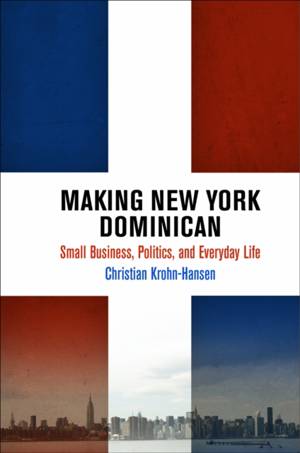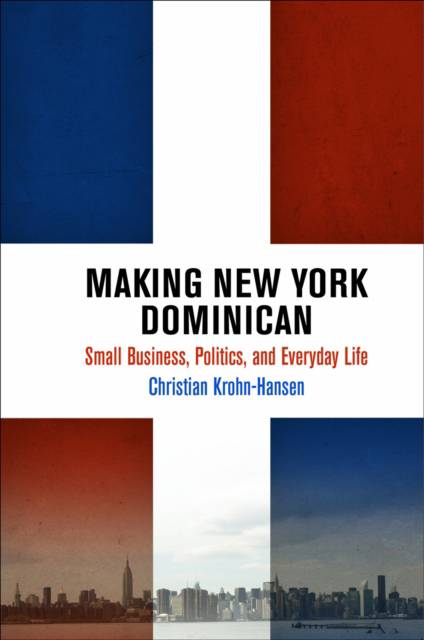
- Retrait gratuit dans votre magasin Club
- 7.000.000 titres dans notre catalogue
- Payer en toute sécurité
- Toujours un magasin près de chez vous
- Retrait gratuit dans votre magasin Club
- 7.000.0000 titres dans notre catalogue
- Payer en toute sécurité
- Toujours un magasin près de chez vous
122,45 €
+ 244 points
Description
Making New York Dominican Small Business, Politics, and Everyday Life Christian Krohn-Hansen Large-scale emigration from the Dominican Republic began in the early 1960s, with most Dominicans settling in New York City. Since then the growth of the city's Dominican population has been staggering, now accounting for around 7 percent of the total populace. How have Dominicans influenced New York City? And, conversely, how has the move to New York affected their lives? In Making New York Dominican, Christian Krohn-Hansen considers these questions through an exploration of Dominican immigrants' economic and political practices and through their constructions of identity and belonging. Krohn-Hansen focuses especially on Dominicans in the small business sector, in particular the bodega and supermarket and taxi and black car industries. While studies of immigrant business and entrepreneurship have been predominantly quantitative, using survey data or public statistics, this work employs business ethnography to demonstrate how Dominican enterprises work, how people find economic openings, and how Dominicans who own small commercial ventures have formed political associations to promote and defend their interests. The study shows convincingly how Dominican businesses over the past three decades have made a substantial mark on New York neighborhoods and the city's political economy. Making New York Dominican is not about a Dominican enclave or a parallel sociocultural universe. It is instead about connections--between Dominican New Yorkers' economic and political practices and ways of thinking and the much larger historical, political, economic, and cultural field within which they operate. Throughout, Krohn-Hansen underscores that it is crucial to analyze four sets of processes: the immigrants' forms of work, their everyday life, their modes of participation in political life, and their negotiation and building of identities. Making New York Dominican offers an original and significant contribution to the scholarship on immigration, the Latinization of New York, and contemporary forms of globalization. Christian Krohn-Hansen is Professor of Anthropology at the University of Oslo. He is author of Political Authoritarianism in the Dominican Republic and coeditor of State Formation: Anthropological Perspectives. The City in the Twenty-First Century Dec 2012 336 pages 6 x 9 2 illus. ISBN 978-0-8122-4461-8 Cloth $69.95s £45.50 ISBN 978-0-8122-0754-5 Ebook $69.95s £45.50 World Rights Anthropology, Sociology, Business Short copy: This volume presents an ethnographic study of Dominicans in New York City through their participation in small businesses. Krohn-Hansen demonstrates how Dominican enterprises work, how people find economic openings, and how Dominicans who own small commercial ventures have formed political associations to promote and defend their interests.
Spécifications
Parties prenantes
- Auteur(s) :
- Editeur:
Contenu
- Nombre de pages :
- 320
- Langue:
- Anglais
- Collection :
Caractéristiques
- EAN:
- 9780812244618
- Date de parution :
- 02-01-13
- Format:
- Livre relié
- Format numérique:
- Genaaid
- Dimensions :
- 157 mm x 231 mm
- Poids :
- 612 g

Les avis
Nous publions uniquement les avis qui respectent les conditions requises. Consultez nos conditions pour les avis.






